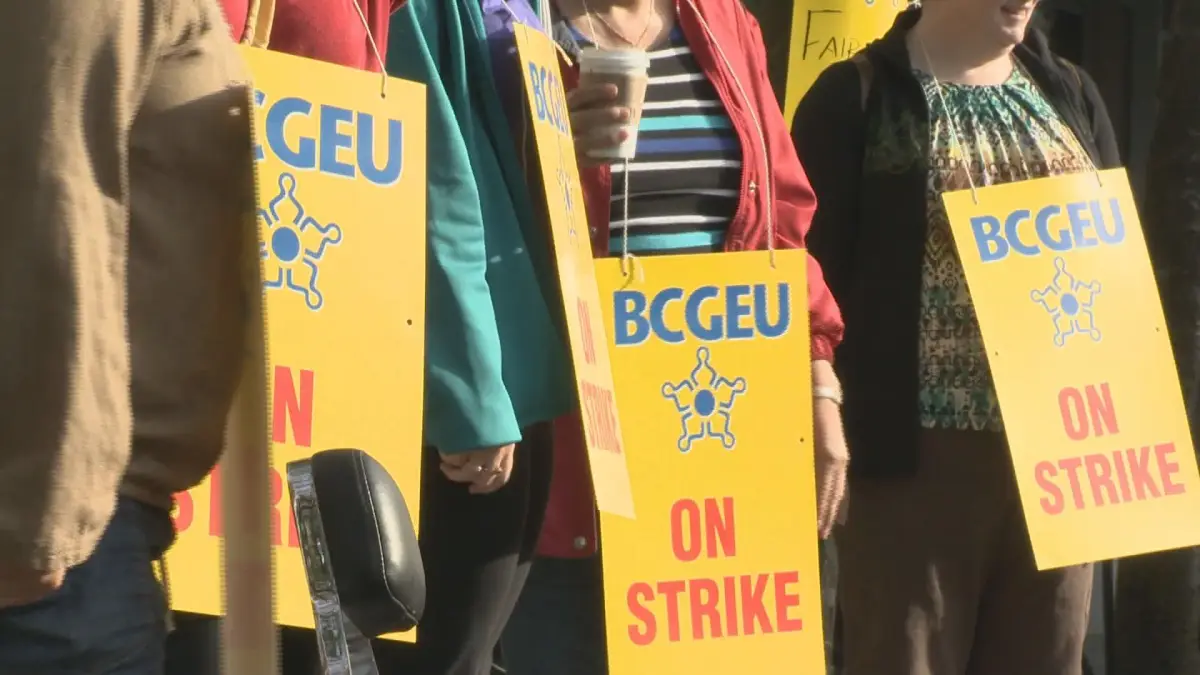The BCGEU represents 95,000 members across British Columbia, including over 34,000 employed directly by the provincial government under the Main Public Service Agreement. This agreement, which functions as a wage and working conditions benchmark across the province in multiple sectors, expired at the end of March 2025. After nearly seven months of bargaining, the Union declared impasse with the NDP-led provincial government on July 18, 2025. Public Service members are now preparing for a decisive strike vote in August.
This round of negotiations is one of the most important labour struggles in British Columbia, both in its scale and in its potential to shape conditions for workers across the province. Amid a housing and affordability crisis, BCGEU members are demanding fair and competitive wages that reflect the rising cost of living and respond to the government’s failure to maintain wages in line with inflation. The Union is also calling for stronger protections for remote work, increased funding for frontline staff positions, and changes to broken classification and grievance systems. These are reasonable economic demands.
As the BCGEU puts it, “When public sector workers fight together, everyone’s standard of living rises.” But this fight, while urgent, remains confined within the narrow bounds of economic trade unionism. That raises serious questions about the political role of Unions in a time of deepening crisis.
The BCGEU has long maintained a formal and informal relationship with the BC-NDP, the so-called “party of labour.” In practice, this has involved the invitation of NDP speakers to Union conventions or informal endorsements of candidates and encouragement of members to support the NDP electorally. Now, in this current round of Public Service bargaining, the limits of this special relationship have been exposed. The very government that the BCGEU has helped to elect is the Employer opposing its demands. They are refusing to ensure wages catch up with or at the very least keep pace with inflation, they are underfunding frontline public services, and rolling back working conditions. By refusing to declare independence and to break with the NDP politically, the Union has become restrained in how far it can mobilize its members on the wider political and social struggle. The BCGEU continues to fall into the trap of placing hopes in economic negotiations with a government that governs in the interests of capital; a government that the BCGEU helped to elect.
While militant on the economic front in demanding increases to wages of 4% and 4.25% (plus a cost of living adjustment) over the two year agreement, this impasse between the BCGEU and it’s NDP government offers an opportunity for the Union to make demands beyond economic fairness towards a new vision for the future of the province and Canada as a whole. Amidst multiple colliding crises for working people and global peace, politicizing the demands of the BCGEU would connect the economic demands for liveable wages and better working conditions with wider demands that would improve the lives for all working people, including housing, war, colonialism, and class struggles.
The BCGEU holds tremendous collective power, and could shut down the province if it so chose. This is a moment where the political necessities of our time can be won by an organized, focused, and educated working class; where the BC NDP-run government could be made to bend to the demands of working people.
The BC NDP have trampled the rights of Indigenous peoples. Bill 7 undermines First Nations’ rights to self-determination, cynically using the economic threats expressed by the US president to cover for the same violations it has been committing since well before the current crisis. The BC NDP government has refused to meaningfully support ceasefire talks, and have actively sought to violate the civil liberties of individual and collective pro-Palestinian expression. At home, the BC NDP has failed to adequately address austerity, the housing crisis, rising toxic drug deaths, environmental standards, and the ongoing dismantling of public services that workers and communities rely on.
This is a historic opportunity for the BCGEU to reverse the roles between its governing Employer and the Union, by making demands of the government that will have an impact beyond narrow economic demands. Only by building solidarity across sectors, communities, and borders, and by standing firmly against austerity, war, and oppression, can the working class wield its true power.
Now is the time for the working class to come together to collectively demand that the government carry out the policies and actions that benefit working people, and to demand accountability, reversing the trend of allowing the NDP to take its support for granted. By shifting towards a strategy based on independent labour political action, the BCGEU and all workers can harness their collective strength not just to negotiate better contracts, but to challenge the capitalist system that exploits and divides us.
The Communist Party of BC stands with the rank-and-fiile of the BCGEU and the working class of BC in this struggle for a better world.

